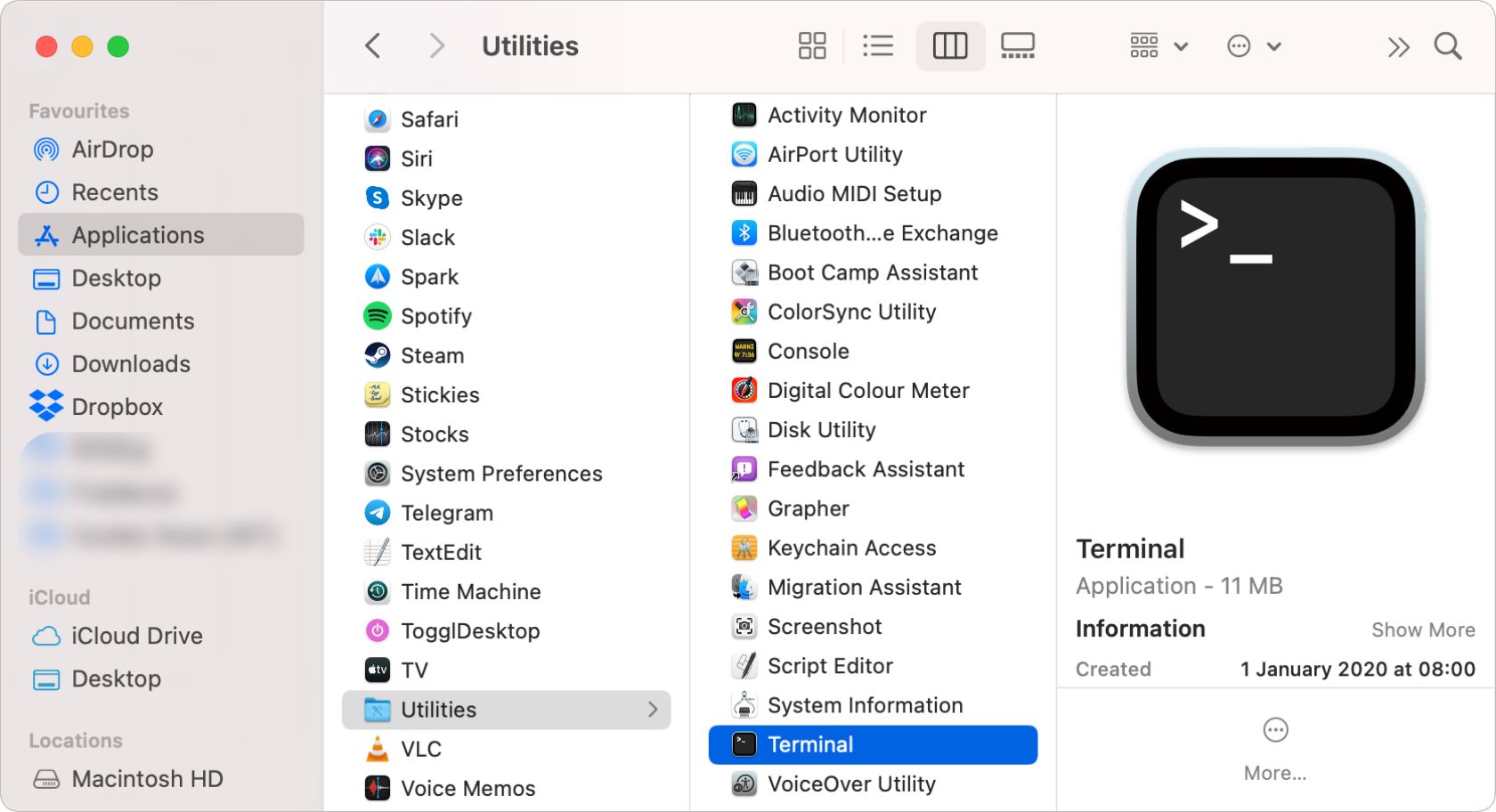
- #Open terminal in folder mac how to
- #Open terminal in folder mac mac os x
- #Open terminal in folder mac install
- #Open terminal in folder mac full

You may find it useful to save this connection information so that you can easily find it the next time you need to use it. UserName: Your Humboldt User Name (e.g., abc123) Protocol: SFTP (SSH Secure File Transfer)ģ. To use Cyberduck to set up an SFTP connection to your Humboldt Network Folder, follow these steps:ġ. Note: Command line access to Network Folders is not permitted for terminal or SSH connections. Advanced users may use the command line to connect to the server if they wish. The instructions below are based on Cyberduck v2.8.
#Open terminal in folder mac install
Please download and install Cyberduck before following the instructions below to upload a file to your Network Folder.
#Open terminal in folder mac how to
Mavericks and below - How to find the Absolute Path to a folder on Mac OS XCal Poly Humboldt recommends the use of the Cyberduck SFTP application for OS X secure file transfers. Instructions on how to use this can be found at teh link below: If you are a El Capitan user you are in luck, Apple has now created a specific command to capture the file path. You can have it show a graphical path, but getting just the text based path to a directory (for use in the Terminal for example) requires a couple of extra steps.
#Open terminal in folder mac mac os x
Mac OS X doesn’t have an obvious way to view the exact text based path to a folder (otherwise known as a directory) in the finder window.
#Open terminal in folder mac full
Being able to locate the precise path allows you to unlock the full power of the Terminal, which can often be faster and more efficient that using the Graphical User Interface. Knowing the text based absolute path to a folder can be useful for a number of reasons. Why might I need to know how to find the path to a folder on Mac? NOTE – If the directory path contains spaces, as the example i have used in this post does, you MUST use ” quotation ” marks around the path when typing it into the Terminal. You can now copy this text based absolute folder path and paste it into your Terminal window.

The path to the folder is highlighted and made clearer in the screenshot below: This is the path to the folder we have been looking for. You can see that the Get Info window contains the line “Where:” followed by the text folder path. This displays various bits of info about the folder as you can see below: Now we can simply press the “cmd+i” keys together to open up the “Get Info” window. It’s not pirated like so much Beachbody stuff unfortunately is!): In this example it’s the “month 1″ folder of my Insanity Workout folder (and yes, I did buy Insanity, directly from Amazon actually and these are my back-ups. The first thing to do is identify the folder you need to know the full path for. Here are the instructions for finding the file path on Mavericks and below.

Mavericks and below - How to find the Absolute Path to a folder on Mac OS X Instructions on how to use this can be found here. El Capitan - Built in file path copy function Yosemite users must now follow a complicated procedure of creating a Service to do this simple task or take the path directly from the command line. Yosemite users special noteĪpple removed the ability to easily copy the file path in OS X Yosemite.



 0 kommentar(er)
0 kommentar(er)
